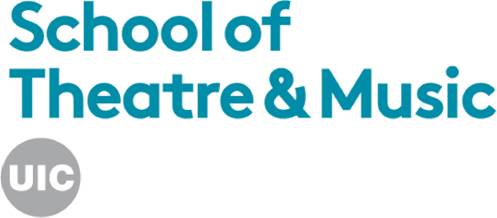STM Courses for Non-Majors FALL 2018

School of Theatre & Music
General Education Courses
Do you love theatre and/or music? Or do you just want to develop a greater appreciation?
Register for one of the fifteen general education courses offered by the UIC School of Theatre & Music (STM). Also, if you act, play an instrument, or sing, consider auditioning for one of our mainstage shows or numerous music ensembles.
The following GenEd courses are offered FALL 2018. Although we are suggesting some section times in this email, there may be other sections available, so check the course schedule for the full section listings. Register soon – STM classes fill up quickly!
All courses fulfill the Understanding the Creative Arts core. Additional cores are noted.
MUSIC
MUS 100: Introduction to Music
Understanding what to listen for in music; emphasizes representative works from the Western classical tradition. Suggested sections:
TR 3:30-4:45 pm (CRN 28981)
TR 5:00-6:15 pm (CRN 32585)
MUS 107: Fundamentals of Music Theory
Notation, metrical organization and rhythmic structure, scales and key signatures, intervals, triads, ear training, and sight singing.
MUS 114: Jazz History
A nontechnical survey of the history and development of jazz from its West African roots to contemporary styles. (Understanding the Past) Suggested sections:
MWF 1:00-1:50 p.m. (CRN 38396)
TR 8:00-9:15 a.m. (CRN 21703)
MUS 118: American Popular Music
History and analysis of American popular music from 1850 to the twenty-first century. (Understanding the Past) Suggested section:
MWF 5:00-5:50 p.m. (CRN 37963)
MUS 127: Latin American Music (on campus or ONLINE)
Introduces students to the rich repertoire of music in Latin America. It explores the history of genres, their development, instruments and representative artists in their geographical, social and cultural contexts. (Exploring World Cultures)
MUS 227: Music Cultures of the World
Examination of music throughout the world from an ethnomusicological perspective. Emphasis on classical, tribal, and folk music; music as a cultural phenomenon. (Exploring World Cultures)
THEATRE
THTR 101: Introduction the Theatre: Pre-modern Theatre
An introduction to the history and development of theatre and theatrical literature Ancient Greece to the modern era, with a focus on Western theatre traditions. Play attendance required. (Understanding the Past)
THTR 103: History of Chicago Theatre Past & Present (ONLINE)
Introduces students to the ideas, individuals, institutions and innovations that shape the field of theatre in Chicago and explores theatre as both a product and a producer of the historic and contemporary social, political, and economic landscape in Chicago and the nation. (Understanding the Past)
THTR 201: Introduction to Theatre II: Modern Theatre
Theatre theories and techniques developed between 1870 and the present, notably those of Ibsen, Stanislavsky, Brecht, Artaud, and Grotowski. Prerequisite(s): THTR 101 and consent of the instructor.
New Music Course!
STM has other courses for non-majors that may be taken as electives. One of these course debuts in FALL 2018, and we invite you to register:
Are you interested in learning more about the music industry?
Are you a musician, vocalist, music engineer/producer interested in managing the business of producing, performing and licensing musical compositions, songs and recordings?
Then MUS 290: Commercial and Legal Foundations of the Music Industry (3hrs.) is for you! MUS 290 is designed to prepare students to manage the business of producing, performing and licensing musical compositions, songs and recordings. It is recommended for musicians, vocal performers, music producers/engineers, artist managers, and anyone with an interest in the business of music.
Topics covered in the course include:
- Music and recording copyrights: How to protect your art.
- Music publishing: How to generate revenue with your music.
- Music licensing: Licensing music for use in radio, television, advertising, the internet, etc.
- Royalty artist services agreements: Working with a recording company as an artist.
- Musician and vocal performer labor agreements: How you get paid as a working musician.
- Business formation: How to form a business or non-profit organization.
- Music promotion: How to reach new listeners across traditional and digital media.
It is possible to waive prerequisites for students whose major is other than music.
Please email the music business faculty coordinator, Robert DiFazio (rdifaz2@uic.edu), if you have interest in finding out more about MUS 290 in FALL 2018.
For more information, please contact:
Melissa Reeves
mreeves@uic.edu
Categories
